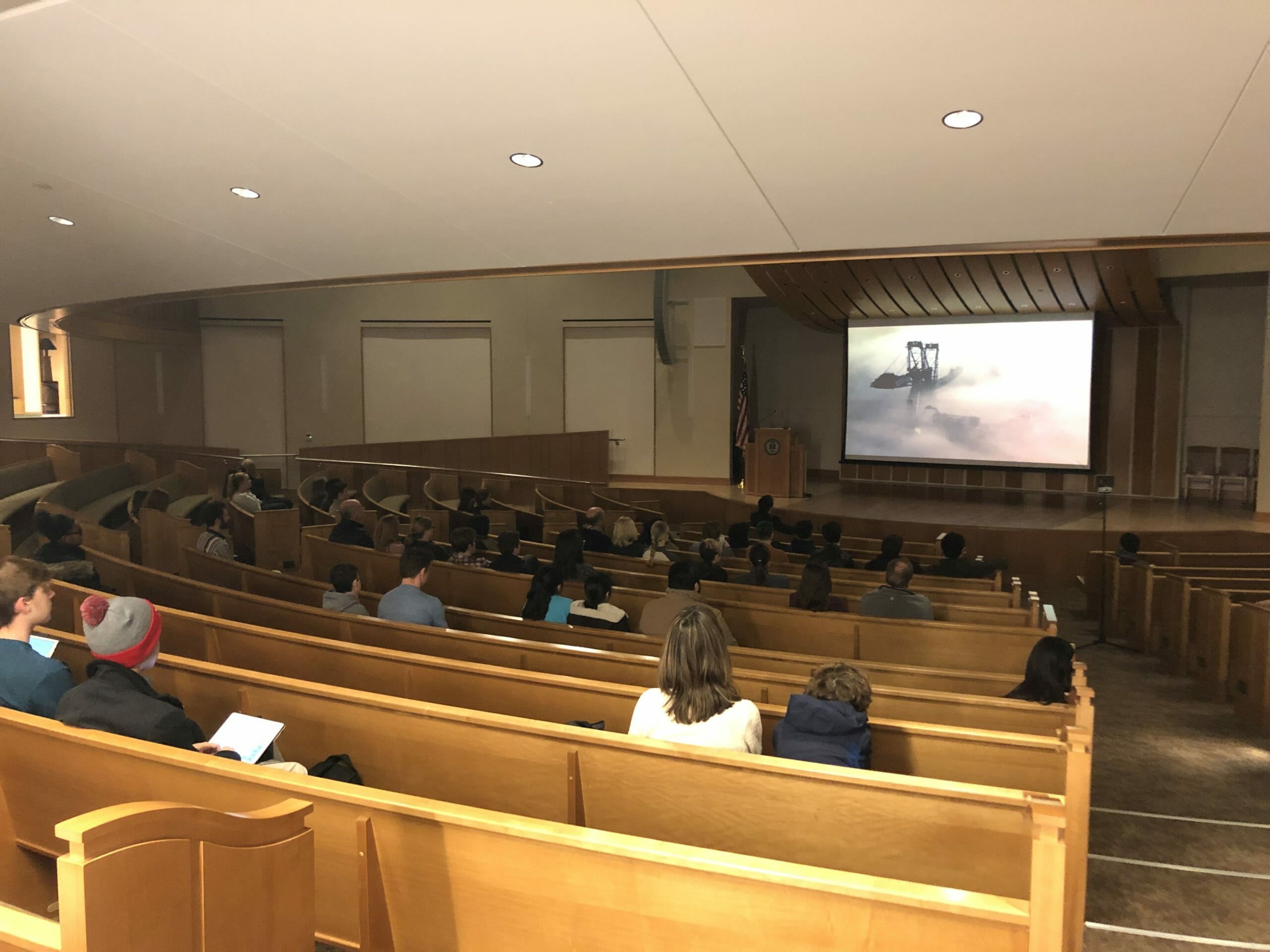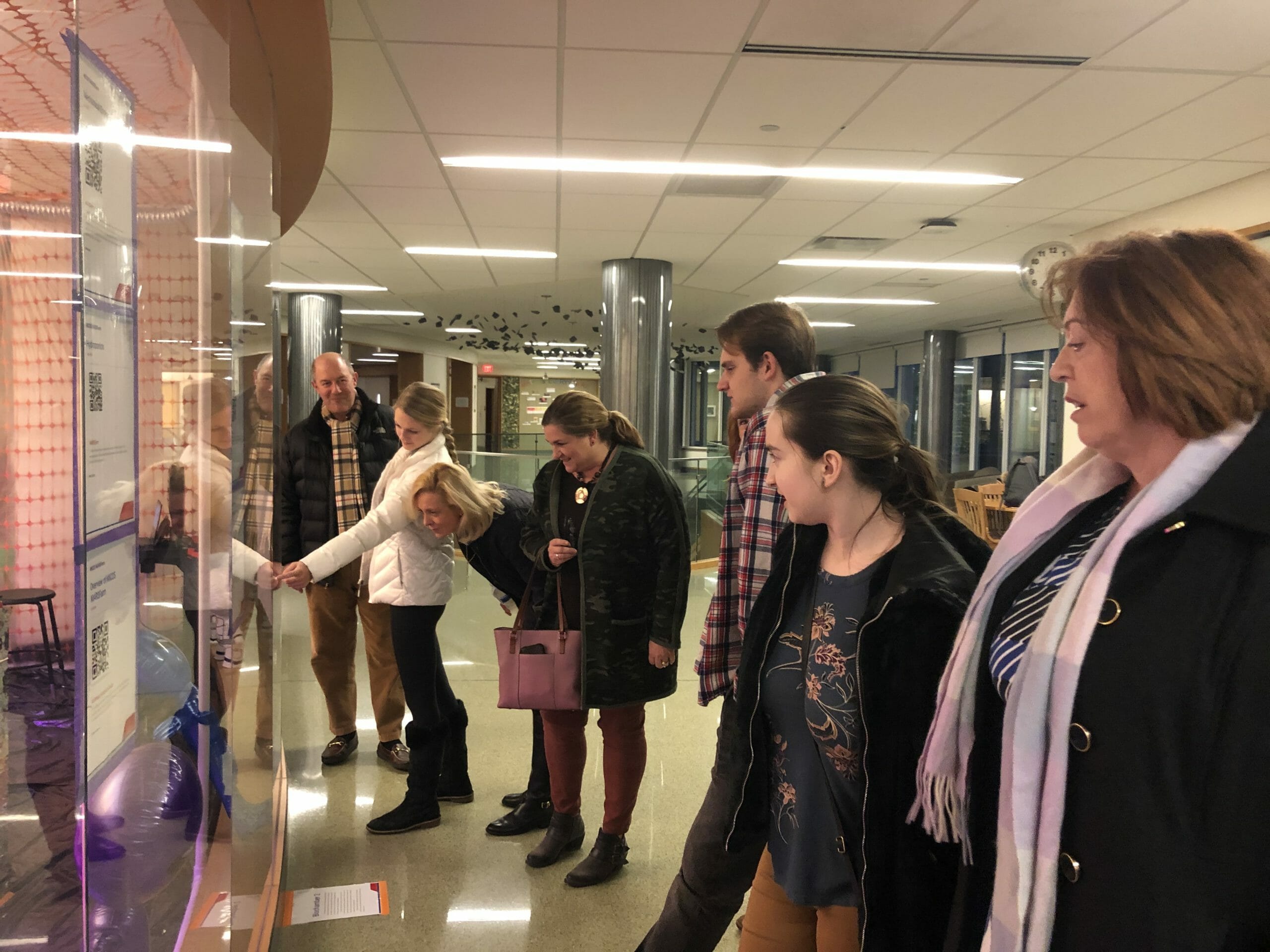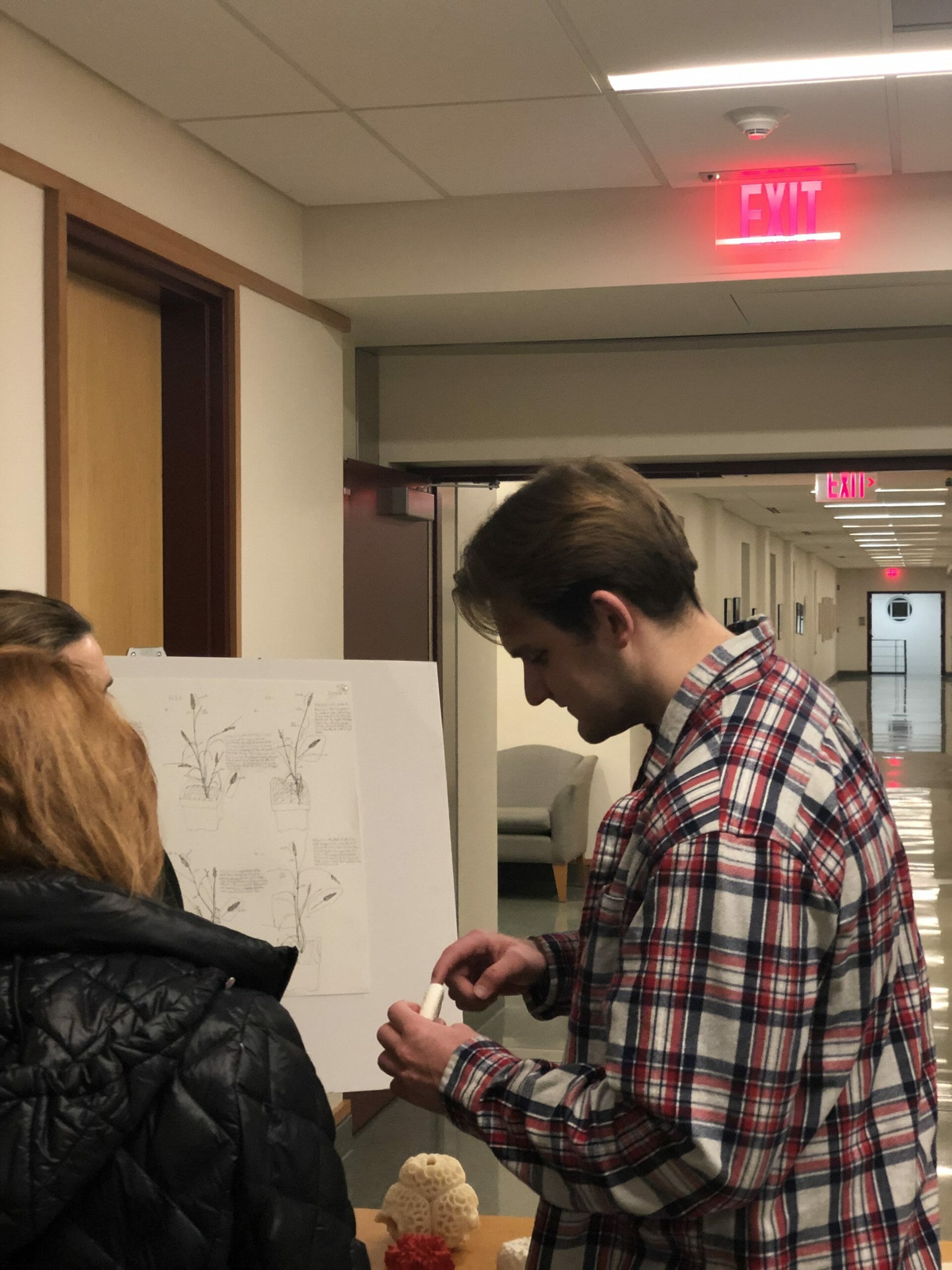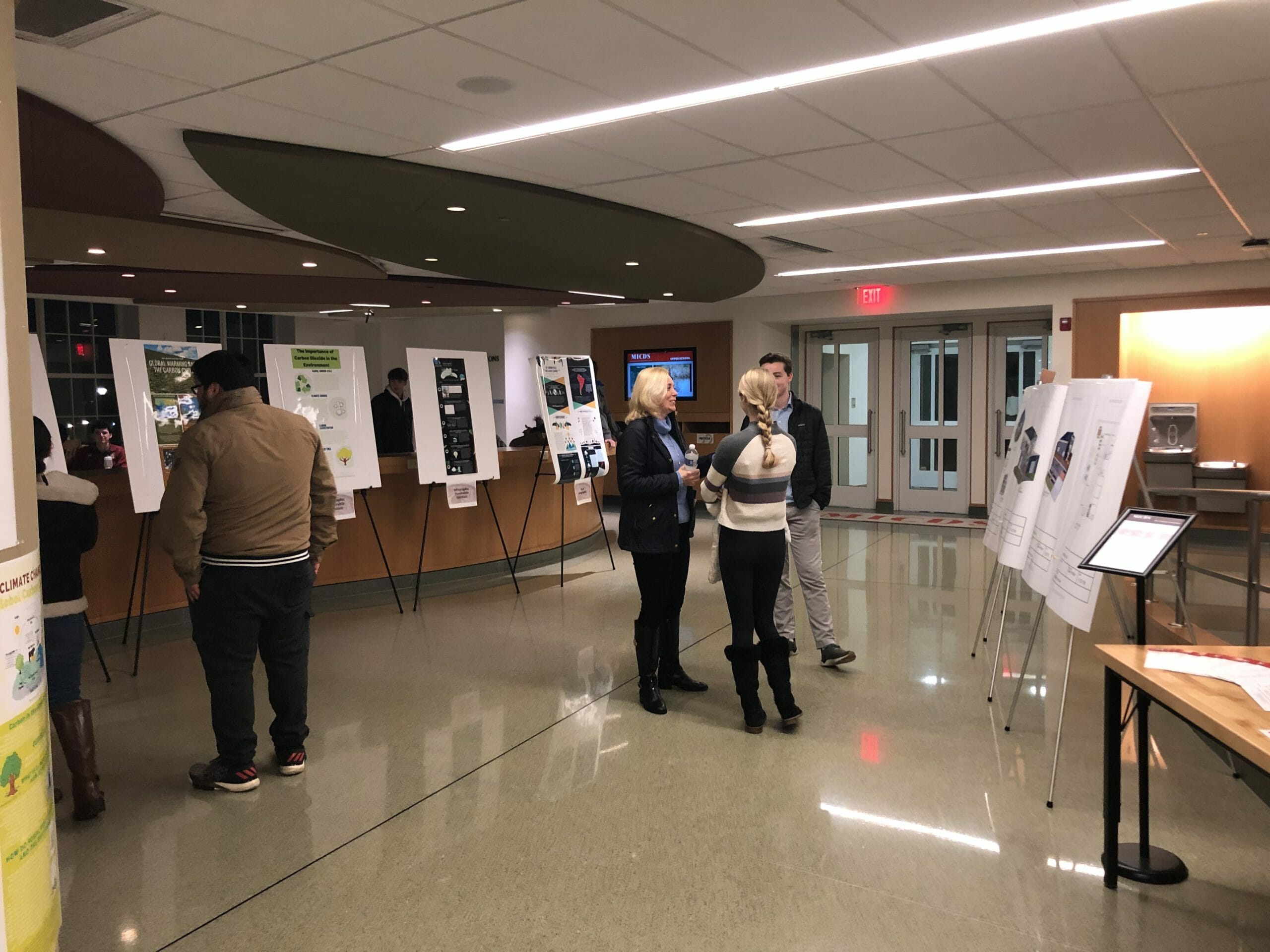The student-organized film screening of Anthropocene: The Human Epoch had a strong attendance of MICDS students, parents, educators and students from other schools.
Before the screening took place, attendees browsed a showcasing of content and projects that were on display in the Upper School STEM building. These displays included carbon sequestration infographics from 10th grade Biochemistry Applications, the MARSfarm and other technical artifacts from the Biological Design class, sustainable building design and Green Ribbon Schools presentation materials from an independent study by Dean Sliney ’20 and Alex Hutton ’20, and digital essays along with virtual reality tours that accompany the film.
Simrin Phatak ’21 opened the event with the introduction of Mr. Ranford (age 94), whom she met during a recent interview for her 11th grade English project. Mr. Ranford shared his perspective about the changing state of our planet and pleaded the audience to take action: « Planet Earth is our only viable home, and it is up to us to preserve it. We have neglected its health for too long. We have to change our attitude, » he said.
Attendees then watched the documentary. It followed 10 years of research by the Anthropocene Working Group, an international group of scientists. In a cinematic meditation-style documentary, the movie explored key human impacts on the environment and how human activities have been reshaping Earth’s landscape, ocean, atmosphere and biodiversity in profound ways.
Following the film, alumnus Doug Munsch ’05, who now works in the solar industry, moderated a panel discussion. « The pace of change over the past 50 years has been extraordinary. The global economy has expanded four-fold, over a billion people have been lifted out of extreme poverty, we live significantly longer and childbirth mortality had significantly dropped. Unfortunately, this 19th and 20th century model of economic growth has come at a significant cost to our planet. However, a similar pace of advancement paired with conservation efforts over the next 50 years could lead to meaningful and impactful change that helps to ensure environmental and social stability for all people. This is the great hope of sustainability. Current youth will largely be responsible for ushering in this change, and we have therefore decided to interview youth as part of tonight’s panel discussion. »
Sam Bomohl ’22, Palmer Mihalevich ’20 and Jonah Zacks ’21, who were the three MICDS students who were honored for their participation in the Molecular Frontiers Journal student competition titled “Solutions for Future Earth, » along with Alysha Ford ’20, the head of the Sustainable Futures club at MICDS, all shared inspiration and answered questions surrounding reasons to be optimistic about the future of our planet. Phatak hopes that the event overall had a hopeful impact on students and young leaders. « This is something that is very important and often overlooked, so I hope that people left the event with a new perspective on how we impact our planet. »
In case you missed the screening, watch the movie trailer here!




